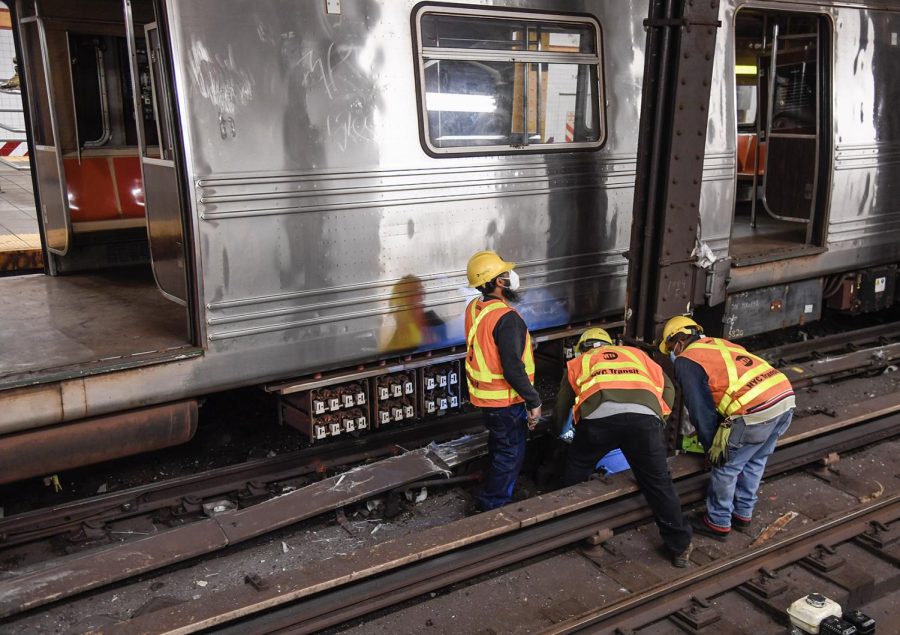Late at night Sunday, March 26, the snowy state of North Dakota saw a large Canadian-Pacific freight train suddenly derail near the Ohio-Pennsylvania border. Among the cargo aboard the train included Petroleum, a key ingredient to make asphalt. 31 of the 70 train cars were affected, due to the low temperatures of the area, there was no threat to the public and no fire ignited.
However, in a bizarre turn of events, this was the second train derailment with chemicals among the cargo this year. East Palestine, Ohio, made major headlines when a Norfolk Southern train going from Madison, ILL. to Conway, PA. derailed on Feb. 3. The derailment caused a large fire, with even fears of a massive explosion. With 38 of its 150 cars derailed in East Palestine, a community of 4,700 residents, many among them were told to evacuate. Soon the fire raged on with much damage to the area and the chemicals being confiscated by authorities. However, the toxic chemicals from the five tankers were taken to a trench to be burned, though among the materials was vinyl chloride, a flammable toxic gas.
Later after the aftermath and cleanup of the accident, many residents were concerned about the quality of air/water of their community. Prompting information to be released of toxic materials from the derailment being released to surface soil, air, and waters in the area. Though the Environmental Protection Agency stated there was no detection of contaminants at “levels of concern” in and around East Palestine on Feb. 12. These train derailments have sparked important concern in the scientific community and El Paso, Texas. What would happen in your community during a situation like this and the possible effects of the aftermath of said situation?
James D. Kubicki, professor and Department Chair for Earth, Environmental and Resources at UTEP, has a bachelors in Geology from California State University Fullerton and a Ph.D., from Yale University, among many other achievements. At an intro to environmental science level, specifying he is not an expert on the realm of this issue specifically, Kubicki speaks toward the environmental concerns and the impact it would have had in the El Paso area if this were to happen.
“It depends so much on what’s being carried,” Kubicki said. “I remember a few years ago, there happened to be a spate of oil train accidents burning all over, but in this case in Palestine, they were talking about polyvinyl chloride that can burn and the products of the combustion of the fire can actually be worse than what they had on the train. Especially when you have things containing chlorine, they can turn into some chemicals that are particularly toxic, but just about anything burning without smoking is going to be bad for you”.
Kubicki speaks on the extra layer of the issue, which can be weather conditions during that specific time, especially the trains that go down the border and the train that goes by Fort Bliss. However, another factor to an issue is what happens to the water in the area and how the water supply of a place is different from one another.
“Part of our water supply comes from the aquifers, from wells, and we have a desensitization plant,” Kubucki said. ”Maybe, we can supply about 10 percent, pumping salty water from fairly deep, but in El Paso, they do a very good job treating the water before it gets to anybody. With Palestine it’s kind of interesting. I think some patches can come in, but thinking that you see a big accident, not to worry about contamination, and you start looking at other people’s water with contaminants in it, thinking it came from the accident. But it really highlights you may have had contaminated water there for 10 years, (only) now noticing it.”
There are many factors that go into an environmental situation like these derailments, and the hypothetical thinking of what would happen in your place of homestead with a situation like this. However, Kubicki stresses the positive aspect, that national attention with these stories is a great call to action to those in power and the more your community hears about what is happening to the environment around them, the better.
H. Catching Marginot is a contributor and may be reached at [email protected].












